
Photo by: Pearl Gabel
There are plenty of commercial bail bond agents near the Brooklyn criminal courthouse, but many don’t cover low-level bonds. Even when bonds are available at that level, low-income families might not be able to offer the necessary collateral.
Living from paycheck to paycheck is no walk in the park, especially after being slapped with bail that you can’t afford. An organization in Brooklyn is now looking to match desperate defendants who cannot make their bail with donors who can.
After viewing the harmful effects of incarceration on clients, the Brooklyn Defender Services, an entity that provides legal services to those who cannot afford an attorney, is in the midst of setting up a fund to pay bail for low-income Brooklyn residents. According to staff attorney Josh Saunders, the fund expects to serve hundreds of people each year.
According to a 2010 Human Rights Watch report, 87 percent of defendants in New York City with bail of $1,000 or less could not afford their bail and spent an average of two weeks in jail waiting for trial. Nearly two-fifths of the population in city jails at any time is there not because they’re deemed too dangerous for pre-trial release, or because they have been convicted of anything, but because they have not posted bail.
For those that are in jail before trial, there are a host of collateral consequences. Defendants who are jailed miss work and school, skip medical and benefits appointments and can face challenges maintaining housing and keeping their children cared for.
“We have clients who live in a family homeless shelter and if they don’t report to the shelter every night, they can lose that shelter and be put back on the street,” says Saunders. “A lot of them also take care of elderly parents. The difference in the way the system treats people in jail versus those who are not is really enormous.”
Low but unaffordable
Bail gives defendants the chance to get out of jail while awaiting trial—if they can provide a set fee to the court. Bail’s not meant to be a punishment, because there’s been no finding of guilt. It can be paid in cash or with a bond offered by a commercial bail bondsman, who will typically require the defendant or his family to put up collateral (cash, property, other assets) to cover the bond. If a person shows up to court, the bail money is returned. If they don’t, the money is forfeited.
Generally, the likelier a defendant is to flee, the higher the bail the court will set. A first-time offender with deep ties to the community facing a minor charge usually gets a low bail, if any. A defendant with a long rap sheet charged with a serious crime—and therefore facing major jail time—has a better reason to skip court. Their bail will be higher.
According to statistics provided by the New York City Criminal Justice Agency, a nonprofit that is contracted to screen defendants awaiting arraignment to quantify their flight risk, in 2010 criminal court in Brooklyn handled just over 100,000 cases. Shy of half those cases ended at arraignment, with a case being dismissed or adjourned. Of the remaining 48,000 cases, about two-thirds of defendants were released on their own recognizance—meaning allowed to leave the courtroom on the promise that they would return. Defendants were sent directly to jail to await trial—or remanded—in a handful of cases. In the remaining 35 percent of cases, bail was set.
That year, 21 percent of bails set in Brooklyn that year were for $500 or less. As low as those bails were, some 40 percent of defendants with bails of $500 or less never made bail. For families who cannot afford even low bail, there are few options, because commercial bail bondsmen rarely offer bonds for bails that are low, because the fees don’t cover administrative expenses.
Besides the impact on defendants work and family lives, pretrial detention affects the way cases play out. Defendants behind bars are also more likely to take a guilty plea, or one carrying a harsh penalty. “Someone who is in jail who can’t afford the bail they will get an offer such as a misdemeanor and 60-90 day; they often plead guilty to get out of jail,” Saunders says.
“We see the real difference in outcome for people who can afford and can’t afford to make bail,” Saunders says. Of those who can afford it, “It is very often that their case results in some kind of non-jail disposition.”
Detaining these defendants also weighs on the pockets of New York City taxpayers. The Human Rights Watch report found that in 2008, $42 million could have been saved if 16,649 non-felony defendants who were not able to make bail of $1,000 or less were not incarcerated.
An example in the Bronx
One of the ways the Brooklyn bail fund will raise money is through donations from the public. The Brooklyn Defender Services “is ready to take donations for the bail assistance fund immediately,” says Lisa Schreibersdorf, the organization’s executive director. “100 percent of any donations will be placed in the fund. This will be tax deductible donation as well,” adds Schreibersdorf. Other details of the Brooklyn fund—like the criteria it will use to decide which defendants qualify—are still being settled.
The Bronx Defenders, through its affiliate the Bronx Freedom Fund, bailed hundreds of people between 2007 and 2009. According to Robin Steinberg, executive director of The Bronx Defenders, “During the 18 months that the Bronx Freedom Fund operated, 150 clients were bailed out and the return rate of our clients was an impressive 95 percent. Additionally, not one client who received Freedom Fund assistance, and was bailed out, was sentenced to jail on their case and almost 50 percent of the cases were dismissed entirely.”
The Bronx Defenders initially raised funds from the Flom Family Foundation and then asked outside counsel to create a separate non-profit entity with its own governing board and administrator to run the fund and post bail for eligible clients. Later, the JM Kaplan Foundation provided funding that enabled the Bronx Defenders to create a separate Immigrant Bond Fund and the FJC Foundation provided additional financial support to the Bronx Freedom Fund.
After a state court in 2009 rejected bail paid by the Freedom Fund because the Fund was not a licensed bail bond agency, the organization ” voluntarily suspended its services,” according to Steinberg, “pending the passage of legislation that would explicitly exempt non-profit entities” from licensing requirements.
One hurdle cleared
That legal obstacle was eliminated in July with the passage of a state law—sponsored by State Senator Gustavo Rivera of the Bronx and Assemblyman Jeffrion Aubry of Queens—that excuses non-profits from the licensing requirements of for-profit bail-bond businesses. This permits state-registered non-profit groups to provide up to $2,000 in bail for poor defendants charged with misdemeanor crimes. That was good news both for the Bronx effort and the new one in Brooklyn.
“Before this law, we would have had to become a bail bondsmen and it is expensive to do,” says Saunders. The bill should be in effect by October.
But the legal hurdle is just one challenge facing bail funds. Steinberg advises anyone in the process of forming a non-profit bail fund that to create a separate entity to oversee the work. ” Public defenders themselves should not be making decisions about which of their clients gets access to the fund, and which ones do not, because our loyalty and obligations relate to each and every client equally and at every phase of representation,” she says.


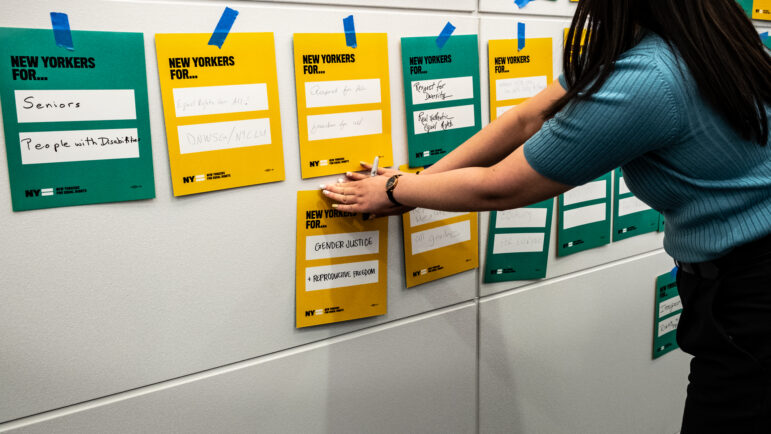
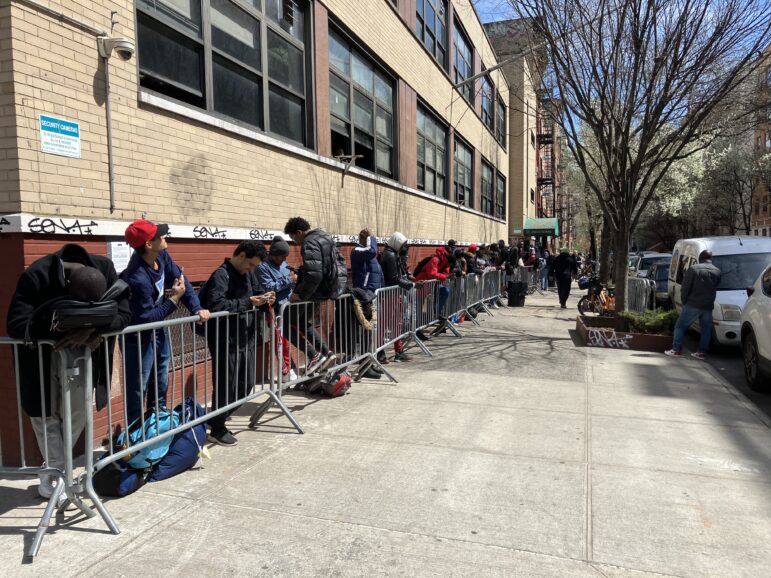
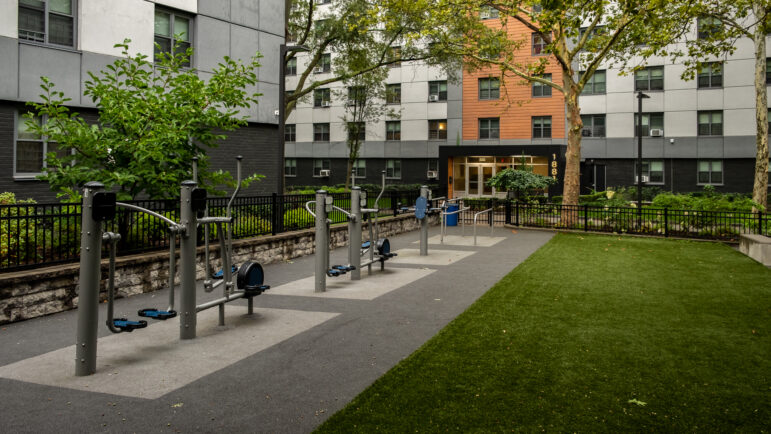
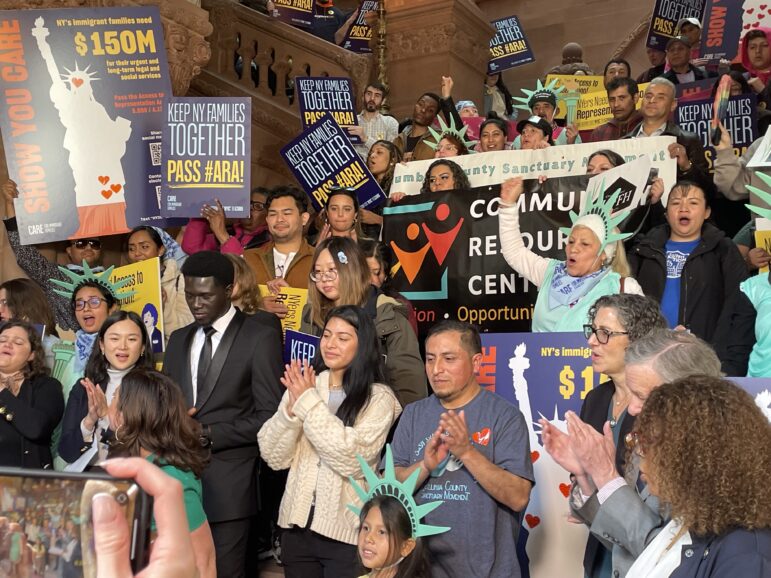
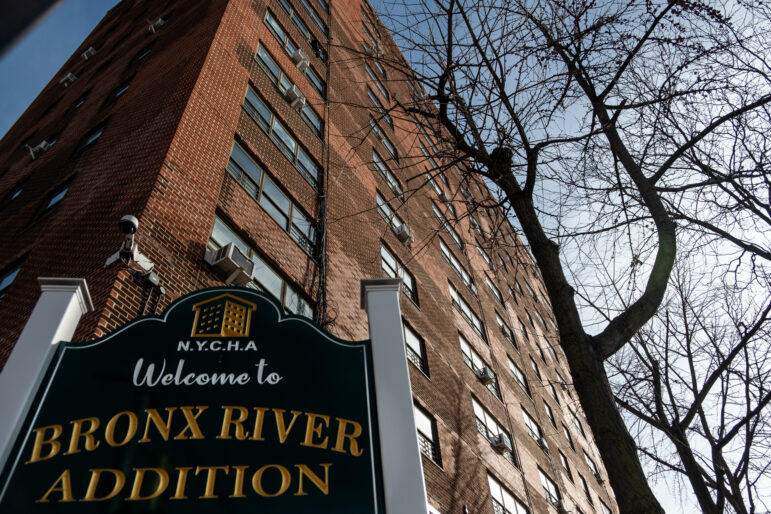


4 thoughts on “Bail Fund Aims to Free Poor Defendants”
My 22 yr old son is in dupage co. Jail in Illinois with a bond of $750.00 dollars that we or him can post. It might as well be 1,000000 millon dollars for hes been in there now 2 months if someone can please help bail him out he can get out and go back to work and paid you back! Please help bail him out!!! My name is marc navarre ph# 815-671-7664 his name is Christopher Navarre.. Thank you!!!
My boyfriend is currently in bcp and he was beating up on the day he was arrested and i need to bail him out so he can get medical treatment. Please contact me at my email address if u can help thanks
My son is in jail for a year and i can’t afford to pay for bail because im on SSI but I need him please I need help
My husband is incarcerated and in need of bail his veil is $250,000. He is visually impaired, receive home health aide 3 days a week and it’s not a flight risk has his own permanent address as well as two animals that he cares for. Please help he is in Brooklyn Supreme Court.